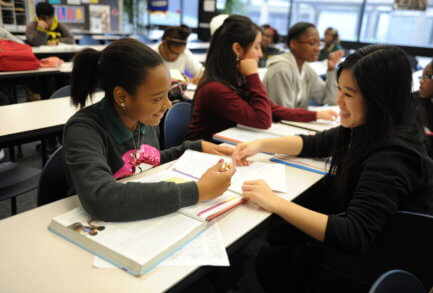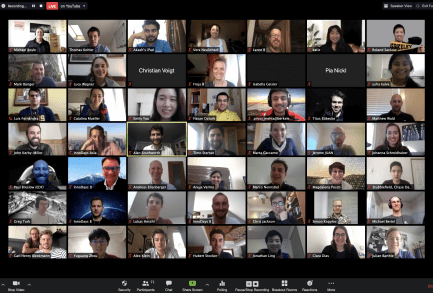University of Notre Dame: Helping women affected by war
An ongoing virtual design thinking project
The challenge
Students studying Innovation and Design Thinking at the Mendoza College of Business at the University of Notre Dame have been working together remotely as part of their course to help develop a vocational school in Uganda.
St Bakhita Vocational Training Centre Kalongo was established to support women who were captured as children during the LRA war in northern Uganda in the late 1980s. The school provides women with technical and business training to give them independence and the skills they need to make a living.
Using the design thinking process, students have been coming together online to generate and explore ideas relating to a variety of areas affecting the development of the school – including school curriculum, the challenge of accessing sufficient power in the area, farming, tourism and more.
How they did it
Wendy Angst, Teaching Professor and Assistant Department Chair in the Management & Organization Department of the Mendoza College of Business has brought 11 teams together on Sprintbase to facilitate their contributions to this project virtually.
Each team is working in groups on the platform to follow the design thinking process and generate ideas related to their area of focus. Wendy manages each team, giving them guidance about what needs to be done at each stage, and overseeing their work and contributions. Since all teaching has moved online, teams have been working remotely from around the world, in India, the Philippines, Spain, in addition to cities across the US.
Teams are using Sprintbase to input all of their work related to the project, including findings and feedback, and they craft their insights together on the platform too. Partners in Uganda are then able to see and engage with what teams have come up with online.

What next?
This is an ongoing project with teams continuing to use design thinking to help generate and test ideas relating to the school’s future.
They’re now looking at how they can help develop reforestation and agri-forestry as sources of income for women in the area. The country has lost a vast amount of its forest cover as a result of tree-cutting for firewood, timber and charcoal.
Teams are exploring the potential for school students to plant charcoal trees, sell the charcoal they produce, and then use the money to offset their tuition fees. Around two thirds of urban households use charcoal as their main source of cooking fuel, according to a 2015 government survey.
The aim is for women to develop an understanding of forestation, as well as key entrepreneurial and business skills.
Wendy shares the benefits of using Sprintbase for this project
- It enabled a mixture of classroom and virtual work.
- It made the transition to online delivery easy. I’m not sure how we would have done this without Sprintbase. Being able to use Zoom and split people into breakout groups kept people debating their ideas and working on prototypes.
- Students gave great feedback on the platform. It gave them a central place to post and track all of their work.
- From a teacher perspective, I appreciated being able to see who was contributing what at each stage of the project. It enabled me to provide support and encouragement to those not contributing as actively as others.
- This demonstrated that we can continue to work effectively with international partners remotely.
- Seamless interaction – working in real time with students, and everybody being able to see what everybody is contributing is really invaluable.
Stay tuned…
We’re looking forward to continuing to work with the University of Notre Dame in the 2020/2021 school year, and to sharing more about how they’re using Sprintbase to achieve incredible things with their students.
Similar stories

Sustainable brand HowBottle uses design thinking to engage customers
A two-week virtual sprint using Sprintbase

Tri-C: Bringing student voice to the heart of planning
Using multiple sprints to improve students’ college experience







